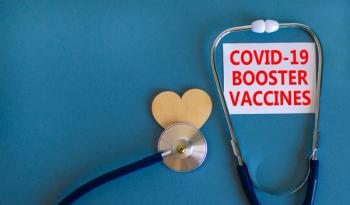
Paxlovid Shows No Benefit in Younger, Vaccinated, Healthy Adults, Study Finds
Results reported in the journal Clinical Infectious Diseases did show protection against serious outcomes (emergency room visits, hospitalizations,death) among adults,18-50, with cancer and cardiovascular diseases but no such benefit among those without those diseases. The study also showed no Paxlovid benefit among those with asthma and chronic obstructive pulmonary disorder.
Research results reported in late June in the journal Clinical Infectious Diseases provide an answer but it has some nuance to it.
The results from a retrospective study of adults ages 50 and under showed that Paxlovid lowered the risk of a composite score of serious events (emergency room visit, hospitalization, death) among those with cancer, cardiovascular disease, or both.
But in those without those diseases and those only with chronic lower respiratory disorders (asthma or chronic obstructive pulmonary disease), Paxlovid had no benefit, as measured by the composite score.
“Yes, the drug (Paxlovid) was associated with good results overall. But no, not everyone who is young and vaccinated should take it,” wrote Jeremy S. Faust, M.D., one of the co-corresponding authors, in his widely read substack, Inside Medicine. Faust is an emergency medicine physician at Brigham and Women’s Hospital in Boston.
Faust described himself as a “Paxlovid pessimist” going into the study who doubted the drug would show a benefit in younger vaccinated people and that his pre-study views were balanced out by “Paxlovid optimists” who thought it would. He noted in the substack entry that Pfizer had canceled its own study of Paxlovid in younger healthy people and that results from an Israeli study suggested that Paxlovid didn’t have benefits for people, ages 40-64.
Faust; his co-corresponding author, Sarju Ganatra, of Beth Israel Lahey Health, a health system in the Boston area; and their co-authors mentioned the need for stewardship of resources for COVID-19 as government funding for COVID-19 treatment decreases.
“Clinicians and policymakers should consider these findings so that vital treatments are prescribed for those who need them, including those who have been underserved, and not wasted on those who stand to gain no benefit," they wrote.
They also mentioned the possible drawbacks of Paxlovid should be considered even among those who their study identified as possibly benefiting from the antiviral combination. The drawbacks include side effects — the most common ones are diarrhea and a change in the sense of taste (dysgeusia) — rebound, the reemergence of the virus or symptoms after taking Paxlovid.
Faust, Ganatra and their colleagues used anonymized data from electronic health records that are part of the TriNetX database to conduct their study. They identified 2,547 nonhospitalized, COVID-19 patients who received Paxlovid within five days of being diagnosed with the disease and matched them to 2,547 nonhospitalized COVID-19 patients who didn't take the antivirals. The crux of the study was comparing the COVID-19 outcomes of those two groups.
Without breaking the patients down by illness, the results show that the patients who received Paxlovid were 30% less likely to have experienced an emergency room visit, hosptialization or death (those events were made into a composite score for the purposes of this study). But when they looked furtehr and seperated out the patients by illnes, the results were less straightforward and suggested Paxlovid would benefit some but not others.
Newsletter
Get the latest industry news, event updates, and more from Managed healthcare Executive.























